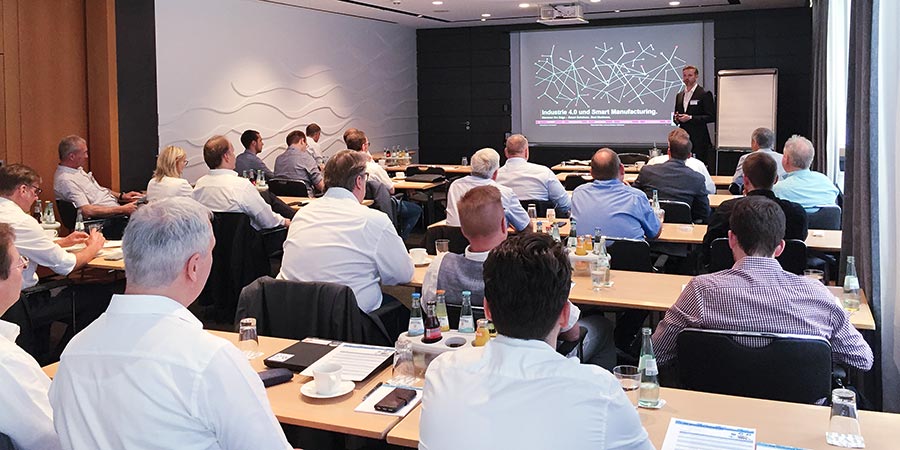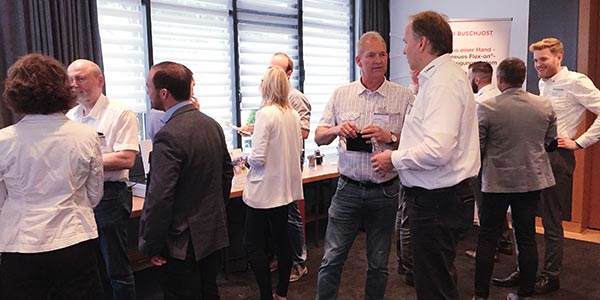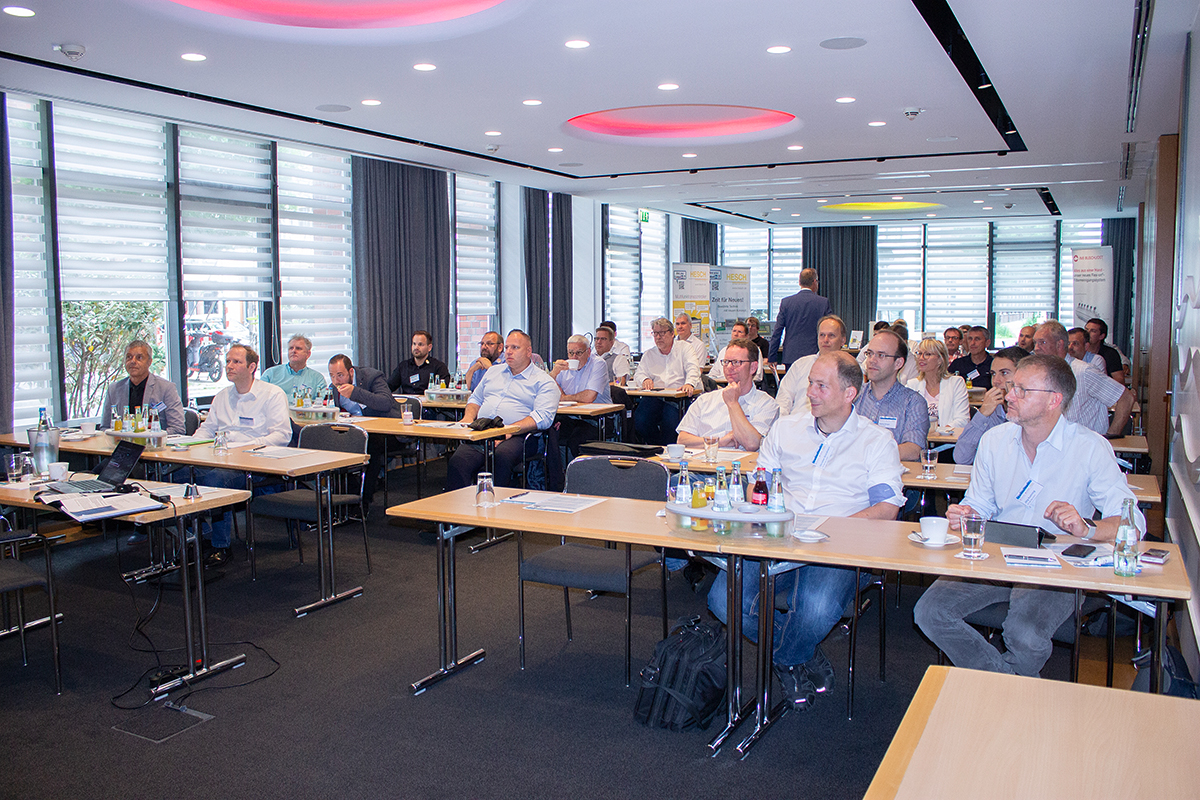Great interest in filter technology industry meeting from HESCH
“All around filtration”: Conference offered exclusive information from speakers from well-known companies
HESCH’s 2nd “All around filtration” industry meeting at the Madison Hotel in Hamburg offered a wealth of information on the topics of Industry 4.0, modular production and energy-efficient filter technology. Numerous trade visitors from Germany and Austria took the opportunity to find out about current trends and make new contacts
Werner Brandis, CEO of HESCH Industrie-Elektronik GmbH, told the conference participants how companies can reduce their energy costs by consistently recording filter data. Among other things, measuring and adjusting the pulse times allows the filter resistance to be optimized, thus reducing the consumption of expensive compressed air.
Many filter systems in the industry are cleaned out too often, Brandis said. As a result, a sufficient filter cake is not formed, which is absolutely necessary for efficient separation. By using the HE 5750 cleaning control system from HESCH, annual energy cost savings of around 22,000 euros are possible for a 500 kW system, with investment costs of only around 15,000 euros. “In that case, the purchase of the control system has already paid for itself in less than a year,” Brandis calculated.
The digital transformation of manufacturing processes in industry was the topic of Maik Wojcieszak from the software developer wobe-systems GmbH from Kiel. His company is developing the new DevOps platform “titan” together with Kiel University. Other associated partners from industry – including HESCH – are involved in this software project.
The open source system is designed to make highly integrated industrial production processes more transparent and enable rapid adaptation to changing manufacturing conditions. It will be vendor-independent and thus can be further developed by any user. “We want to create our own hyperscalable architecture whose building blocks can be changed as needed – and by non-experts,” Wojcieszak said. The project is funded by the German Federal Ministry of Education and Research and is intended to bring about a fundamental change in culture: “Up to now, manufacturing processes have had to adapt to IT – with “titan” it will be the other way around.”
Niklas Coors, Head of Business Development at Buschjost GmbH, described to the participants at the industry meeting how consistent modularization can increase the efficiency of manufacturing processes. Buschjost uses a high number of common parts in the production of its solenoid valves for tank systems and was thus able to significantly reduce manufacturing costs. With the help of an online product configurator, customers can also put together their own individual tank system.
Radek Stolar from Rittal explained in his presentation why edge computing is the prerequisite for the digital factory. The company is known as a control cabinet builder, but now generates a significant portion of its sales from the development and manufacture of data centers. Edge computing refers to local data centers that are directly attached to a company’s manufacturing operations. “They’re the only ones that provide the latency required by a production line automated with artificial intelligence,” Stolar said. “Existing data centers don’t have the capacity to support real-time data transmission via the 5G standard.” Large data center operators such as Google or Amazon would also not have the mechanical engineering expertise that exists in Germany. “This is a great opportunity for German companies,” Stolar is convinced.
HESCH’s “All around filtration” conference provided attendees with plenty of valuable insider information on the industry’s trending topics. Due to the great success, the series is photocopied. The next event will take place in southern Germany.




